Gisborne District Council's water alert levels apply to all domestic residents using the city's water supply.
There are no water restrictions in place, but please conserve water at all times
It's not on tap forever - conserve water at all times
We encourage you to reduce water use around the home.
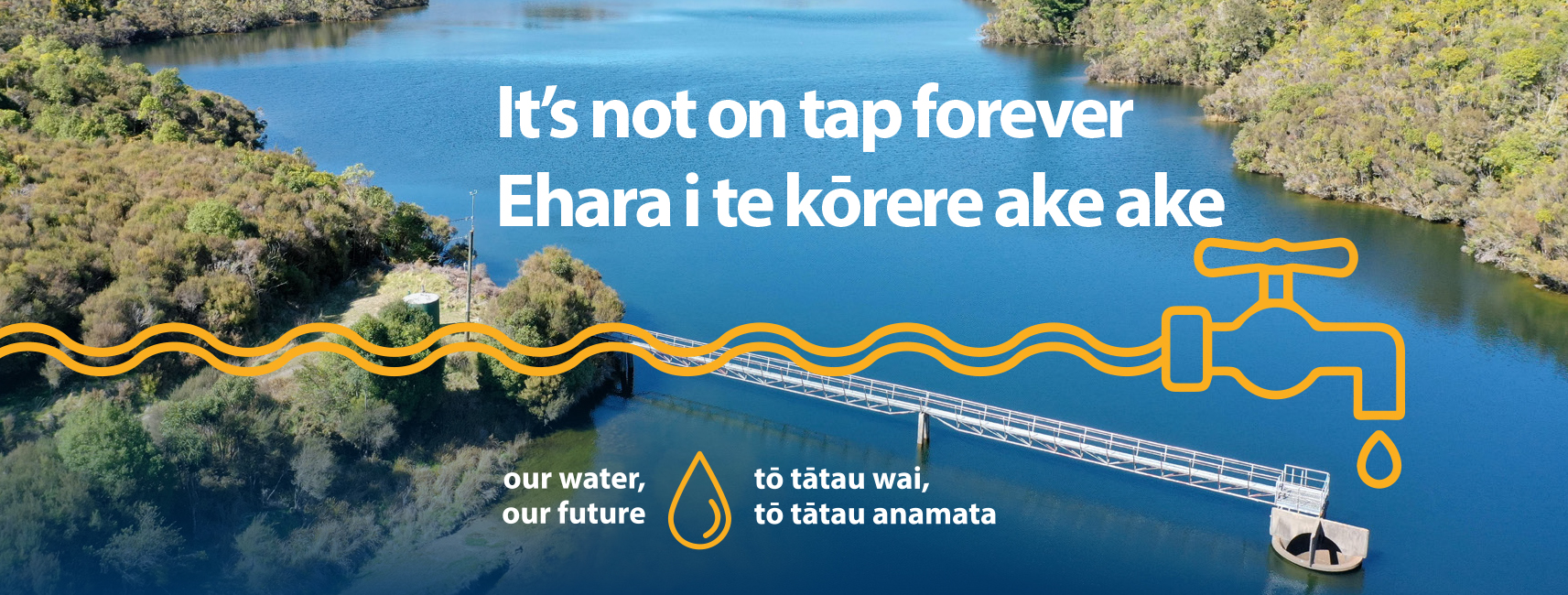
Water restriction levels
Water restrictions are put in place when the water level in our reservoirs are low or our water treatment plant can't make enough water to keep up with demand.
- Sprinkler systems are only permitted between 6-8am
- Keep hand-held hosing to a minimum.
- Conserve water at all times
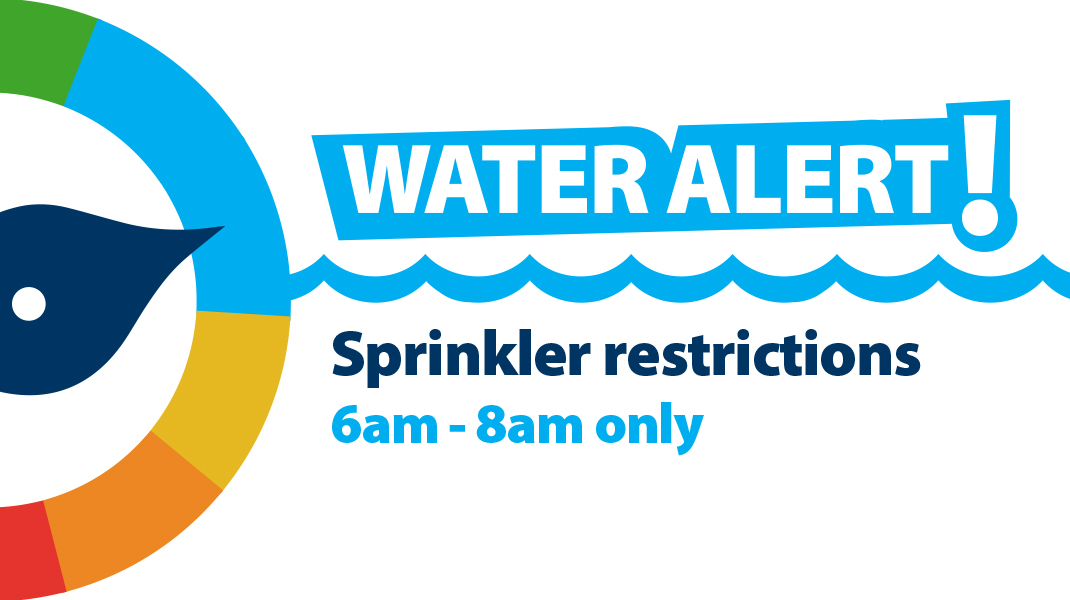
Questions & Answers about water use during restrictions.
- No sprinkler systems at all.
- Keep hand-held hosing to a minimum - but don't waste water.
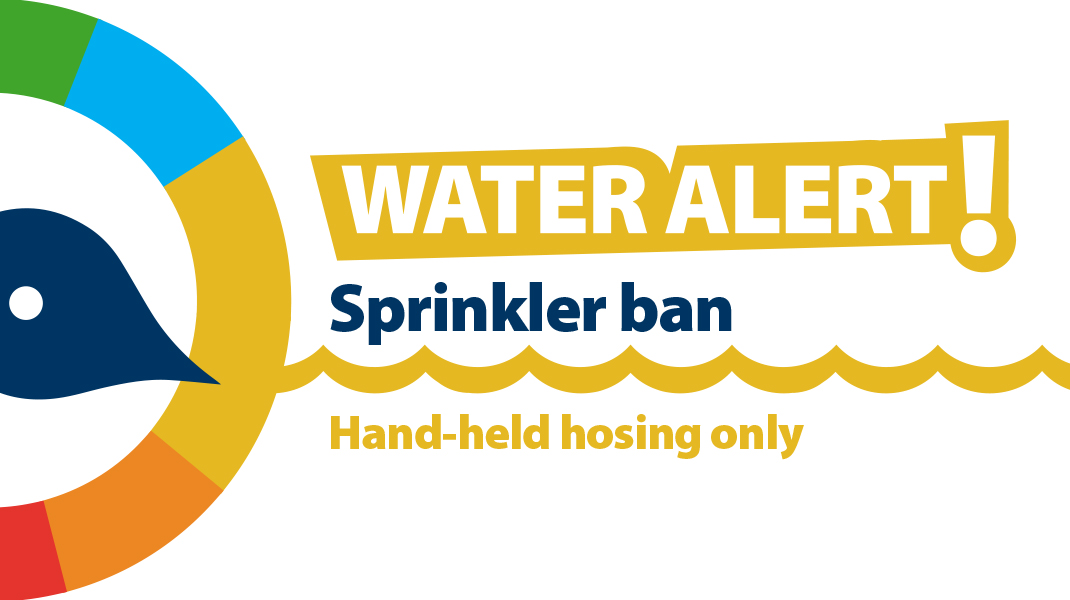
See questions and answers about water use during restrictions
Check our water saving tips in the garden and outdoor use
- Outdoor water restrictions
- Residential - total outdoor water ban
- Industrial - essential outdoor water use only
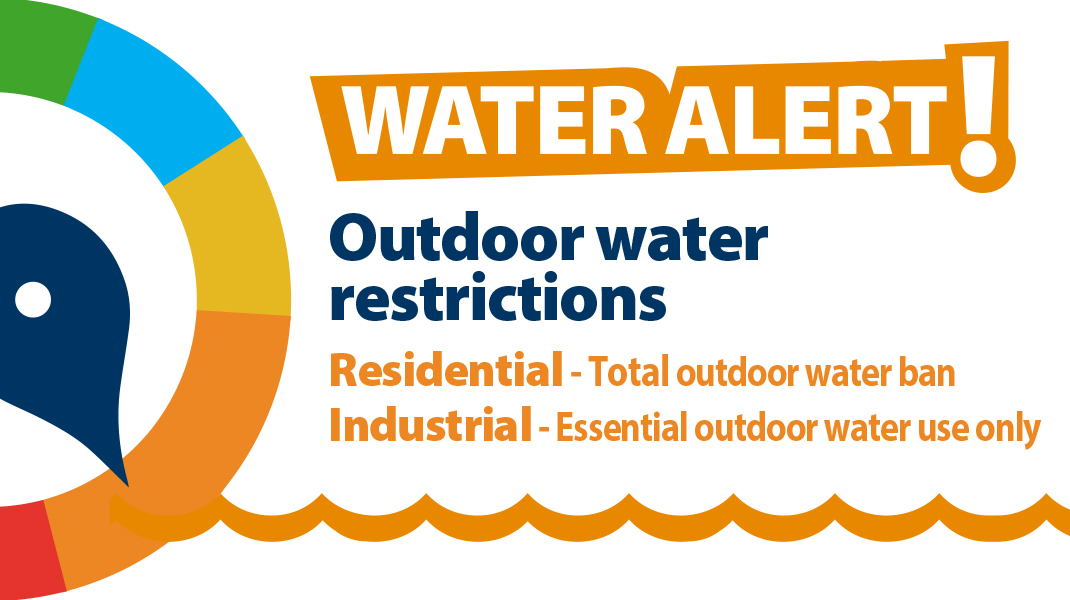
- Total outdoor water ban at all times
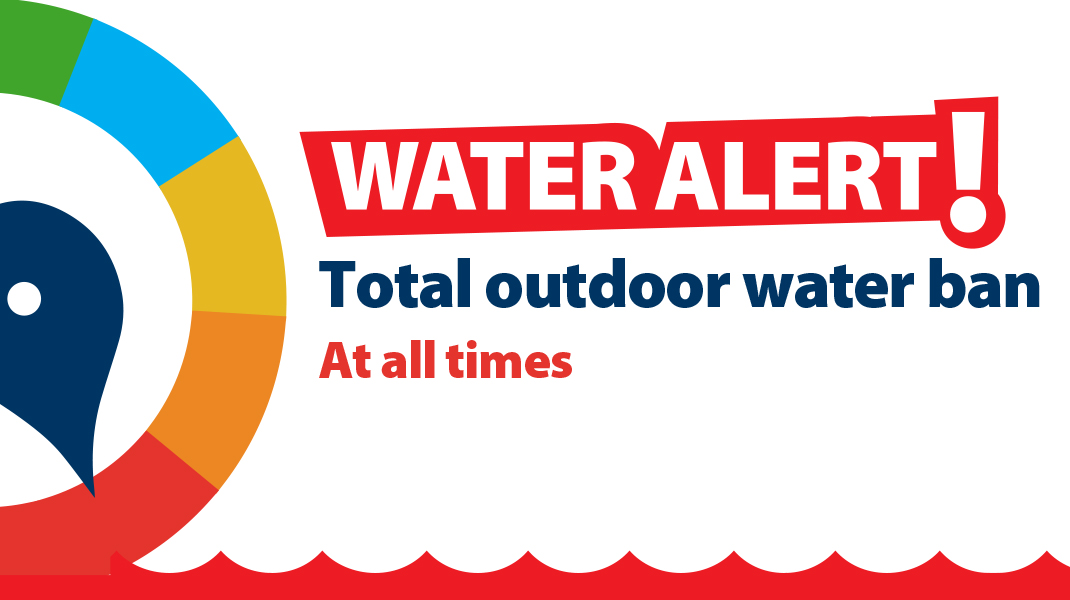
Q&As - water use during Level 2 and 3 restrictions
There's less water demand in the morning than at peak times during the day and early evening. Also people may forget to turn the sprinkler off at night.
Please conserve water by using a bucket to wash, and only the hose to rinse off. Wash your car on the grass, then it waters the lawn too.
Please conserve water - keep watering to a minimum, longer than 30 minutes is excessive. Avoid watering the garden during the heat of the day.
Please conserve water - keep it to a minimum. Also put a cover on the pool to stop the water evaporating.
Absolutely. Any automatic sprinkler system on parks, sport grounds and gardens (that don’t use bore water like the Botanical Gardens) are either changed to the time restriction or turned off.
We may water some gardens by hand with a mobile water sprayer. In some cases, there may be a need for essential watering for newly sown turf etc, but we'll keep watering to a minimum.
If rain's falling that means we see big decreases in water demand due to people not using water outside.
If the Mangapoike dam levels are low, we need a lot of rain in the Waingake catchment to top the dams up. Sometimes we don’t get enough rainfall in that area until the end of winter.
Water restrictions may remain in place during periods of rain in summer if we know there’s still a high demand coming up.
Gisborne has a secondary water treatment plant that draws water from the Waipaoa River. It's essentially a 'back up' supply that's turned on when the dams reach a minimum limit. The plant's prepared in time before it’s needed, but because river water needs more treatment than the Waingake supply, it’s more expensive to run.
Water used for irrigation by farmers, growers and even Council, doesn’t come from the city's drinking water supply.
These water users have permits to take a set amount of water from water sources such as streams, rivers or aquifers. In the Freshwater Plan there's rules that restrict water takes from these sources if the amount of water in them gets too low. These rules make sure that everyone who's taking water uses it responsibly and wisely.
Let your lawns go brown in summer. Gardens are ok to be watered, as long as you keep to the water alert level restrictions.
If you're concerned about water wastage or see a water leak, let us know so we can check it out. Contact us anytime or fill in our online request form.
